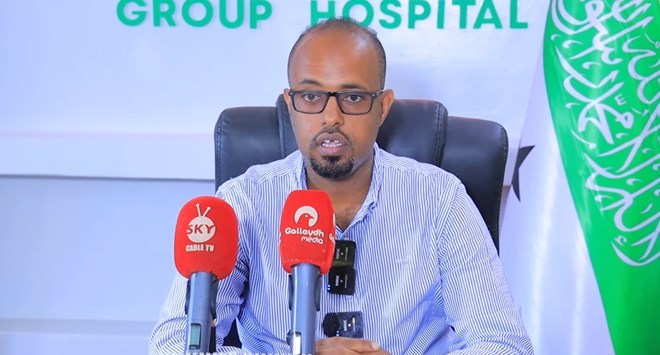
Tuesday December 24, 2024

Dr. Abdirahman Mohamed Osman, Director General of Hargeisa General Hospital, addresses the media about the findings of the investigation into the tragic deaths of two youths caused by carbon monoxide poisoning.
The victims, Huda Ahmed Sheikh Farah and Hamse Ahmed Yusuf were discovered lifeless in the car on Thursday morning. According to an investigation by Hargeisa General Hospital, what initially sparked fears of foul play or toxic ingestion was later revealed to be a mechanical failure in the vehicle's exhaust system.
advertisements
"Our detailed examination ruled out drugs, toxins, or any harmful substances consumed through food, water, or medication," said Dr. Abdirahman Mohamed Osman, director general of the hospital. "The deaths were caused by carbon monoxide gas leaking into the car cabin due to a defect in its underside."Carbon monoxide, often called the "silent killer," is an odourless, colourless gas that can suffocate victims within minutes. In this case, it appears to have seeped into the vehicle undetected, creating a lethal trap.
"This gas can reach fatal levels in five to ten minutes," Dr. Osman added. "Upon inspecting the vehicle, we found a hole in the exhaust system that allowed the fumes to infiltrate the interior."
The sudden loss of two promising young lives has sent shockwaves through Somaliland, prompting a public outcry over preventable dangers. Many in the community have taken to social media and local forums to demand stricter vehicle safety regulations and awareness campaigns on the risks of carbon monoxide exposure.
The deaths have reignited calls for enhanced vehicle inspections, improved public education, and stricter enforcement of safety standards across the region.